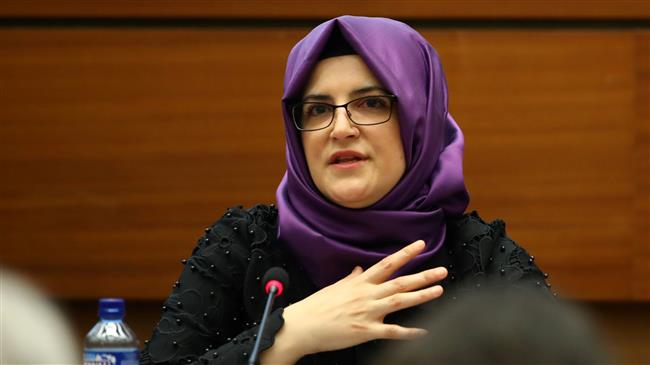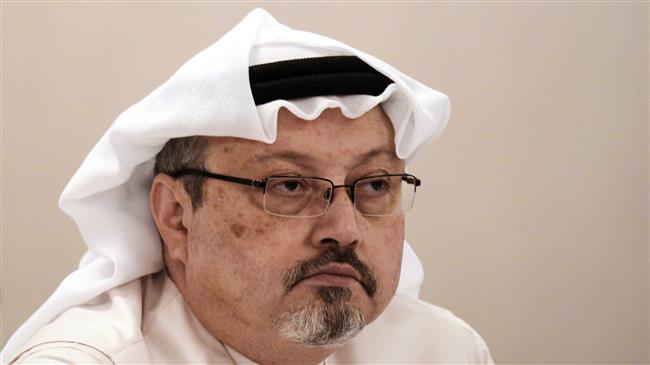UN expert urges ban on spy tech sales to Saudi Arabia over Khashoggi's murder
A UN expert, who recently concluded a probe into the state-sponsored assassination of Saudi dissident Jamal Khashoggi, has called for sanctions on surveillance technology sales to Riyadh, amid reports that the regime has been using such spyware to keep track of the dissidents living abroad.
Speaking at the Brookings Institution in Washington on Tuesday, Agnes Callamard, the UN special rapporteur on extrajudicial, summary, or arbitrary executions, said that such a ban would help to not only hold Riyadh accountable for Khashoggi’s murder, but also to prevent similar extrajudicial killings.
“I do believe there should be a moratorium on the sale of surveillance technology to Saudi Arabia,” she said, adding that the regime has shown it “cannot be trusted” with it.
Khashoggi — a late but vocal critic of Saudi Crown Prince Mohammed bin Salman— was killed and his body was dismembered by a Saudi hit squad after being lured into the kingdom’s consulate in Istanbul, Turkey, on October 2, 2018.
His fate was unknown for several weeks, until Saudi Arabia confirmed under rising international pressure that the journalist had been murdered at the diplomatic mission.
Last month, Callamard presented findings of her six-month investigation into Khashoggi's murder case.
In her 101-page report, she said that there is “sufficient credible evidence” indicating that bin Salman bears responsibility for the murder, and that he should be investigated for the murder.
Reports revealed last year that Saudi Arabia had been using extensive technology tools to harass the dissidents living abroad or spy on them using Israeli software long before it ordered Khashoggi’s assassination.
Elsewhere in her Tuesday’s remarks, the UN expert stressed that Khashoggi’s killing had violated various international norms, including the Vienna Convention on consular relations and the UN charter on the extraterritorial use of force.
She also underlined the need to recognize that a state had carried out the murder.
“We really must insist that this was a state killing, and for it, the state must be held responsible and accountable,” Callamard said, noting that the killers were state agents who used Saudi government means to execute their crime.
“As you know, the killing took place in a consulate; the consul himself used his power to ensure that there were no witnesses on the floor when the killing took place,” she said. “So all of the dimensions of the execution of the crime meet the definition of a state killing.”
The UN rapporteur further complained that Western sanctions on Saudi citizens involved in the crime amount to an endorsement of Riyadh’s claim that the murder was carried out by “rogue” agents.
“So it’s really important to insist on what we do vis-a-vis the state of Saudi Arabia, not some 15, 17 individuals,” she said.
Callamard also criticized the Saudi investigation into the case for failing to meet international standards.
“There is no way I can conclude that the investigation conducted by Saudi Arabia was done effectively, was done in good faith and allowed for international cooperation,” she said.
World powers should reconsider holding the next G20 summit in Saudi Arabia, the UN expert said, noting that the event, scheduled for November 2020 in Riyadh, offered a chance to pressure the regime over the killing.
“Political accountability for Mr. Khashoggi will mean that it doesn’t happen or it’s moved elsewhere, or something is being done to ensure that the political system in the US and in other countries does not become complicit of that international crime,” she said.
Hamas hails Gaza’s victory over Israel in genocidal war, its forcing enemy to agree to ceasefire
'Capitulation': Israeli officials and media concede Gaza defeat as truce unfolds
'Gaza has won': Social media users react to ceasefire with mix of relief, joy
Iran seeks South Korea’s assistance for AI, fiber-optic projects
VIDEO | Iran's 'Eqtedar' (Power) maneuver
Israel hits HTS military target in Syria for 1st time since fall of Assad
VIDEO | Press TV's news headlines
Israel has slaughtered 13,000 students in Gaza, West Bank
















 This makes it easy to access the Press TV website
This makes it easy to access the Press TV website